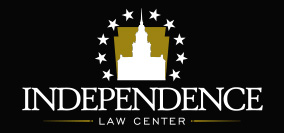Case Page
Summary
303 Creative v. Elenis is the case of a Colorado website designer who is defending her right to use her artistic talents in a way that is consistent with her religious beliefs. After working for various businesses and organizations in marketing and graphic design, Lorie started her own business, 303 Creative, in order to have the freedom to use her artistic passion to convey and celebrate messages she was passionate about. For her, 303 Creative gave her the opportunity to pour her heart, soul and imagination into celebrating marriage by creating a one-of-a-kind wedding website for each couple. Lorie is a Christian who believes that marriage is intended to be between one man and one woman. Because of her deeply-held religious beliefs, she was unwilling to use her artistic expression to create messages that would violate her religious convictions.
Colorado officials ruled that the state’s public accommodations law required Lorie to use her creative talents to design a website that would embrace and celebrate marriages between LGBT partners, without any regard for Lorie’s own rights of religious liberty and free speech under the First Amendment. Lorie appealed through the courts.
“The Colorado law, if found to be constitutional, would literally mean that the government has authority to dictate what individuals can and can’t say – regardless of their own beliefs and conscience.” – Randall Wenger, Chief Counsel – Independence Law Center
The Court of Appeals for the Tenth Circuit ruled that the rights of LGBT customers to require that Lorie use her artistically unique talent to design their wedding website took precedence over Lorie’s rights to practice her occupation consistent with her faith. The court held that because Lori’s services were deemed by the court to offer customers a product of unique quality and nature that no other designer could replicate, Lori could be compelled, under Colorado’s law, to design websites for all people regardless of any conflicts with her religious beliefs. Such a decision gave Lorie only two options: violate her own religious convictions or leave her occupation altogether.
“The fact that the Tenth Circuit recognized the unique and artistic nature of Lori’s work emphasizes the extent to which Lori would be compelled to creatively and artistically celebrate and affirm the union of LGBT customers through her own expression – that was the nature of her work.” – Jeremy Samek, Senior Counsel – Independence Law Center
Status
On June 30, 2023, the United States Supreme Court ruled in favor of Lorie Smith in a 6-3 decision in 303 Creative v. Elenis. More details here.
Our Role in this Case
Independence Law Center has submitted an amicus brief in support of Lorie, asking the Supreme Court to rule that the First Amendment protects individuals like Lorie from government-compelled speech.
From the brief:
The stakes here are high. Those seeking to make an example of traditionally-minded wedding professionals can use today’s information technology to find those professionals precisely in order to be denied service and thereby force such professionals out of public life. A loss by 303 Creative here will inevitably allow the weaponization of public-accommodations law.
Case Documents
Press Release
June 30, 2023: U.S. Supreme Court Rules in Favor of Free Speech in 303 Creative case
Additional Resources
Op-Ed – Philadelphia Inquirer: The Supreme Court’s ‘303 Creative’ decision benefits progressives and conservatives alike
Alliance Defending Freedom: 303 Creative

